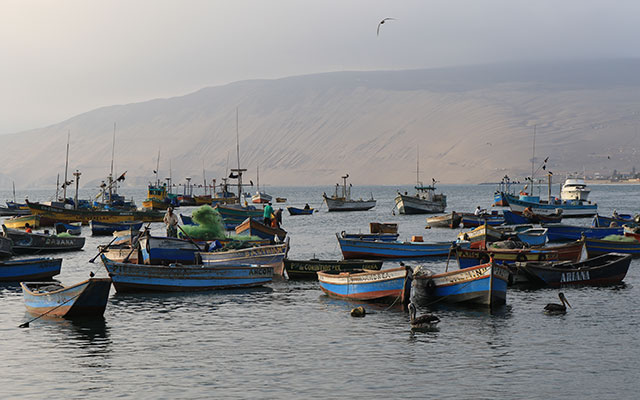Teams Like This
Overfishing threatens many of the world’s fish stocks — and the millions who rely on fish for their food and livelihoods. Reliably managed fisheries suffer less overfishing, but more than 90 percent of Earth’s fisheries currently lack effective management. Scientists have developed innovative approaches to assess and manage fisheries even with limited data and resources. These approaches need to be mainstreamed by managers and scientists working together to ensure widespread adoption.
OUR APPROACH: This group assembled fish stock assessors, social scientists, ecologists, and marine conservation practitioners to evaluate the problems of data-limited fisheries, and build a framework to solve it.

FishPath
FishPath is a decision-making software application that provides fisheries managers with a step-by-step guide to select monitoring, assessment, and management methods for their fishery. It is now the most comprehensive toolkit for data-limited fisheries. Researchers launched this tool during pilot projects in Peru and Kenya, and its successful use has sparked interest by other governments around the world. If widely applied, FishPath will help ensure that nations can adequately assess and manage their fisheries, thereby improving both conservation and economic outcomes.

“The user-friendly FishPath software facilitates direct and process-oriented engagement with fisheries stakeholders.”
– Carmen Revenga, Project co-Leader
This article presents the process and decision-support tool, FishPath, to guide the identification of suitable harvest strategy component options for fisheries in data- and capacity- limited situations.
This overview website describes how the FishPath tool works (also see the tool user guide).
This guidebook helps conservationists improve the management of marine resources by providing a broad overview of fisheries management.
This study investigates a suite of market-based strategies for mitigating the short‐term economic losses associated with designating marine reserves.
The Nature Conservancy
The Nature Conservancy; University of California, Santa Barbara
Centro Nacional Patagonico; The Nature Conservancy
University of California, Santa Barbara
University of California, Santa Barbara
National Center for Ecological Analysis and Synthesis (NCEAS), University of California, Santa Barbara
University of Miami
The Nature Conservancy
National Oceanic and Atmospheric Administration (NOAA)
Biospherics, PTY
The Nature Conservancy
The Nature Conservancy
The Nature Conservancy
University of Washington
CSIRO
Environmental Defense Fund
The Nature Conservancy
Mer Consultants